|
This weekend is the feast of St. Patrick—one of the most popular saints in the Archdiocese of Washington where I grew up and arguably in the entire United States. But two days later on March 19, coming much more quietly and with far less fanfare in American culture, slips in the Solemnity of St. Joseph.
It is easy to lose the Solemnity of St. Joseph in the rigors of Lenten observances or because it comes on the heels of the day-long party that seems to happen every year on St. Patrick’s Day. Perhaps we often overlook this feast because we know so little about who St. Joseph was and what his life was like. Nevertheless, St. Joseph remains an incredibly important figure, especially for parents. Joseph is mentioned only a few times in the New Testament. We know from the Gospels that Joseph was a law-abiding and righteous man, and that he obeyed God’s will—especially when it was revealed to him directly by an angel. After these few mentions in the infancy narratives of Jesus, St. Joseph gently fades into the background and then disappears altogether from the Gospels. But the Church in her wisdom has made St. Joseph’s importance clear for those who are paying attention: he is mentioned in all four Eucharistic Prayers at Mass, as well as in the Divine Praises during Benediction at the end of Eucharistic adoration. But what makes St. Joseph so special? From what we can glean from the Gospels, St. Joseph was an ordinary man of deep faith who was called to become the foster-father of Christ. He became the earthly guardian of the Messiah, responsible for his upbringing and tasked with protecting him in his early life. St. Joseph’s commitment to his vocation as the husband of Mary and the foster father of Christ was so strong that upon being warned about the murderous intentions of King Herod, he fled immediately—in the middle of the night!—to Egypt. He did whatever it took, even leaving his entire life behind him, in order to keep his family safe. The little we see of him in the New Testament shows us a devout man who always trusted in God and took care of his family. St. Joseph, as the third member of the Holy Family, is the member who is the most like us—especially those of us who are parents. He was not born sinless, nor was he divine. He was a carpenter, a man of humble station who probably felt as though he had a monumentally important task thrust upon him. I think St. Joseph’s role in Christ’s life beautifully displays the role of a Christian parent in their child’s life. Parents are ordinary people who are tasked with the care and raising of new life. Like Joseph, we do not own our children or have sole claim over them; they are their own people, entrusted to our care and guidance until they grow old enough to do God’s will without our assistance. It is a difficult task, and at times overwhelming to ponder. And yet there is St. Joseph, who was tasked with raising the very Son of God. Joseph shows us that we do not need to be perfect in our roles, only willing to be guided by God as we place our trust in Him. Just as I strive to be like Mary in my vocation as a wife and mother, I pray that my husband will be like Joseph. St. Joseph is the ultimate husband and father, a faithful man of quiet strength, protector of Mary’s virginity, and guide of Christ’s earthly childhood. Above all, St. Joseph shows us the beauty of a life lived in obedience to God’s will. Questions for Reflection: How can you grow closer to St. Joseph throughout this Lenten season? What can you learn from St. Joseph’s example of obedience and trust?
0 Comments
When was the last time you thought about St. Joseph? For many, he is a shadowy figure. And yet, he is recognized as the "protector" of the Church. His feast day is March 19th. What's your image of Joseph? Is he young or old? Is he working or sleeping? Is he rich or poor? Is he strong or weak? We invite you to clear away all those images in order to see him for the first time. Let's meet Joseph as he is presented to us in the Gospel of Matthew at the birth of Jesus. Of course, the best thing to do is to pray with Matthew 1:18-25. Here’s the abbreviated version: Mary and Joseph are engaged. She is expecting. He intends to divorce her quietly but learns, in a dream, that she is carrying a son who will "save his people from their sins" (Matthew 1:21). Joseph is told to accept Mary as his wife and name the child Jesus. In this passage, we see four qualities in Joseph—compassion, righteousness, fidelity, and decisiveness—that make him a saintly man and a role model for us today. Imagine how Joseph felt about Mary's pregnancy. The marriage customs of his day were much different than ours. Were they "in love" or was the engagement arranged? Perhaps Joseph felt more hurt than angry—or perhaps disappointed, given Mary's natural innocence. In any case, he responded with compassion; He did, however, want to do what is right. While he never says a word in the Gospel narrative, Joseph's actions continually say "yes" to God's will. He takes Mary into his home as his wife. He honors Mary's special relationship with God by not having "relations with her until she bore a son" (Matthew 1:25). He claims Jesus as his son by naming him. Joseph lived a quiet fidelity expressed in action rather than words. A kind-hearted man who accepted the mystery of salvation entrusted to him, Joseph adopted Jesus and raised him as his own. He protected him, taught him, and loved him. In the Gospels, Jesus is known as "the carpenter's son." Joseph's love for Mary and Jesus sharpened his awareness of the forces around them. When Herod threatened the life of Jesus, Joseph leapt into action, leaving that night for Egypt. When the threat was gone, he brings Jesus back to his people. When he realized some threat remained, he settled in Nazareth, thus fulfilling a prophecy. His actions were always for the good of Jesus and Mary, and ultimately a part of God's plan for salvation. As we get closer to Joseph, we meet a kind-hearted man, walking humbly with his God, as he accepts, protects, and raises Jesus so that Jesus can "save his people from their sins." St. Joseph can shed considerable light on what it means to be a missionary disciple in an increasingly secular age—with implications for the economy, family, and mission. He plays a quiet, but essential, role in salvation history. Perhaps we, too, have a quiet role to play in salvation history. Perhaps Jesus is relying on us just as he relied on Joseph. Compassion, righteousness, fidelity, and decisiveness can help us live out our role just as they served Joseph. What does the word adoption mean to you? Joseph's vocation began with a dream—a message from God. He is commanded to "rise, take the child" as his own. When we engage the world, do we possess it or does the world possess us? Do we adopt friends, jobs, things—even children, seeing them through the eyes of God? Adoption is a way of being in the world. We are adopted children of the Father in Christ Jesus. We are claimed by God and so we, too, can claim others and make them our own - being possessed in the best sense of the word. Joseph adopted—Jesus, Mary, and his life as a carpenter in fidelity to God who, with and through Jesus, was saving the world. St. Joseph, pray for us.
When was the last time you thought about St. Joseph? For many, he is a shadowy figure. And yet, he is recognized as the "protector" of the Church. His feast day is March 19th. However, we celebrate it this year on the 20th because the 19th lands on a Sunday. What's your image of Joseph? Is he young or old? Is he alone or with someone? Is he working or sleeping? Is he rich or poor? Is he strong or weak? We invite you now to clear away all those images in order to see him for the first time. Let's meet Joseph anew, as he is presented to us in the Gospel of Matthew at the birth of Jesus. Of course, the best thing to do is to pray with Matthew 1: 18-25. Here’s the cliff note version: Mary and Joseph are engaged. She is expecting. He intends to divorce her quietly but learns, in a dream, that she is carrying a son who will "save his people from their sins" (Matthew 1:21). Joseph is told to accept Mary as his wife and name the child Jesus. In this passage, we see four qualities in Joseph - compassion, righteousness, fidelity, and decisiveness - that make him a saintly man and a role model for us today. Imagine how Joseph felt about Mary's pregnancy. The marriage customs of his day were much different than ours. Were they "in love" or was the engagement arranged? Perhaps Joseph felt more hurt than angry; or disappointed given Mary's natural innocence. In any case, he responded with compassion; he did not want to see her hurt. He did, however, want to do what is right. While he never says a word, Joseph's actions continually said "yes" to God's will. He takes Mary into his home as his wife. He honors Mary's special relationship with God by not having "relations with her until she bore a son" (Matthew 1:25). He claims Jesus as his son by naming him. Joseph lived a quiet fidelity - expressed in action rather than words. A kind-hearted man, accepting the mystery of salvation entrusted to him as his God-given purpose, his vocation, Joseph adopts Jesus and raises him as his own. He protects him, teaches him, and loves him. Joseph's love for Mary and Jesus sharpened his awareness of the forces around them. When Herod threatens the life of Jesus, Joseph leaps into action leaving that night for Egypt. When the threat is gone, he brings Jesus back to his people. When he realizes some threat remains, he settles in Nazareth thus fulfilling a prophecy. His decisive action was always for the good of Jesus and Mary. As we get close to Joseph, we meet a kind-hearted man, walking humbly with his God, as he accepts, protects, and raises Jesus so he can "save his people from their sins." He plays a quiet, but essential, role in salvation history. Perhaps we, too, have a quiet role to play in salvation history. Perhaps Jesus is relying on us just as he relied on Joseph. Compassion, righteousness, fidelity, and decisiveness can help us live out our role just as they served Joseph. St. Joseph, pray for us.
“Blessed be St. Joseph, her most chaste spouse” — these words, taken from the Divine Praises of our Church (a prayer that is often used at the end of Eucharistic Adoration), remind us of the important role that St. Joseph plays as the patron of the Universal Church. St. Joseph is the foster father of Jesus, “most chaste spouse” of Mary, but he is also our guide. There are exactly zero words of St. Joseph recorded in all of scripture, yet the role that he plays is not to be underestimated. He teaches us how to live in obedience, persevere in holiness and chastity, and love well. The obedience that this holy patron showed to the will of God is nothing short of extraordinary. He did this first by accepting the message of the angel to take Mary as his wife, then by protecting his family as he fled with them to Egypt, but most importantly, in those quiet, unlogged hours at home with Mary and Jesus in Nazareth. Although his life did not unfold as he would have anticipated, his obedience and docility to God’s will allowed him to play a crucial role in the life of Christ and ultimately in the story of our salvation. St. Joseph’s perseverance in holiness and chastity sets a very clear example before us. His life is a compelling reminder for us that to do the will of God, we need only be obedient to the present moment and faithful to the higher calling that is ours by nature of our baptism. In a world that sees chastity as outdated and nearly impossible, he reminds us that pursuing it is not only important for our own lives of virtue, but salvific for others. St. Joseph also teaches us how to love well. The gentle striving of St. Joseph, both as he led Mary and Jesus, and now as he leads our Church, can be summed up by these words of St. Josemaria Escriva, “God always asks more: His ways are not the ways of men. St. Joseph, more than anyone else before or since, learned from Jesus to be alert to recognize God’s wonders, to have his mind and heart awake.” Several years ago, a spiritual director suggested that I start to pray every day to St. Joseph for my future husband. With the following prayer, I beg his intercession to not only allow me to persevere in obedience and chastity, but also with the sure knowledge that he will protect my future husband and family. Guardian of virgins and father, St. Joseph, to whose faithful custody Innocents itself, Christ Jesus, and Mary, Virgin of virgins was committed; I pray and beseech thee by each of these dear pledges, Jesus and Mary, that, being preserved from all uncleanness, I may with spotless mind, pure heart, and a chaste body, ever serve Jesus and Mary most chastely all the days of my life. Amen. May the intercession of St. Joseph allow us to persevere in obedience, chastity, and love! *Ite ad Joseph is Latin for “Go to Joseph” and admonishes us to turn to St. Joseph’s intercession and guidance. Question for Reflection: Following the example of St. Joseph, how might you grow in your ability to be obedient to the present moment? I still remember as if it were yesterday. There I was—a junior in high school with my sights set on my then life’s goal of playing college soccer—listening to the doctor tell me the results of the recent X-ray: “You have a stress fracture in your left ankle.” My heart sank, and I immediately focused on the most apparent, inevitable consequence of that injury: I would have to sit out the whole season, meaning I would miss crucial recruiting opportunities. To say the least, I was discouraged as I stood before the rather large and ominous mountain that so suddenly impeded the pursuit of my goal. I instantly began feeling sorry for myself and let anger creep into my heart. Then, in what I now look back upon and gratefully remember as “the moment of mercy,” I heard God’s gentle voice speak to the depths of my heart and tell me, “Carolyn, there’s more to life than soccer.” With my heart pierced by that voice, my desire to play college soccer disappeared. I soon began making decisions that would lead me to the people and places that God had in mind for me to more deeply encounter His mercy and to discover the actual goal of my life. During my first year of college, the Lord sent a spiritual director into my life who asked me a life-changing question: “Carolyn, what is the goal of your life?” At that time, I couldn’t honestly answer, since I couldn’t yet put into words what the Lord had begun stirring in my heart through the stress fracture event. Yet, over the next few years of college as I continued spiritual direction and developed a more habitual prayer and sacramental life, the Lord began to show me the answer to the question: Communion with God—holiness—is the goal of my life, because Love is the meaning of life. In a special way during this Jubilee Year of Mercy, the Church is called to be “a living sign of the Father’s love in the world” (Misericordiae Vultus 4). At the heart of the Jubilee Year of Mercy, we find the Person of God the Father, whose love is both the origin and goal of our life. The Year of Mercy is a special time of grace in the Church, and Jesus invites us to daily re-encounter our Heavenly Father, to be renewed by His love—which alone gives meaning to our life—and to joyfully share the gift of His love with those whom the Lord entrusts to us each day. At a General Audience on December 9, 2015 (the day after the opening of the Year of Mercy), Pope Francis emphasized the purpose of the Jubilee Year: Turning our gaze to God, our merciful Father, and to our brothers and sisters in need of mercy, means focusing our attention on the essential contents of the Gospel: Jesus, Mercy made flesh, who renders the great mystery of the Trinitary Love of God visible to our eyes. Celebrating a Jubilee of Mercy is equivalent to placing once again the specific nature of the Christian faith, namely Jesus Christ, the merciful God, at the center of our personal life and that of our communities. In other words, Pope Francis is saying that the invitation during this Jubilee Year of Mercy is to “return to the basics” of our faith: to enter more deeply into the mystery of the Holy Trinity, which is “the central mystery of Christian faith and life” (CCC 234). In fact, Pope Francis begins his letter for the Jubilee Year with words which aim to “sum up the mystery of the Christian faith”, namely, that “Jesus Christ is the face of the Father’s mercy” (Misericordiae Vultus 1). Jesus’ whole earthly mission was to reveal the truth about God’s inner life of love and man’s vocation to that love that originates from the Father’s heart (John 17:3; CCC 514-518). This is why Jesus tells Philip, “He who has seen me has seen the Father” (John 14:9). Everything Jesus says and does reveals the Father (CCC 516) and aims at “restoring fallen man to his original vocation” (CCC 518) of love. Thus, the Jubilee Year of Mercy is a special moment of grace to daily re-orient the gaze of our hearts towards the merciful gaze of the Father that tenderly awaits us. This gentle and loving gaze of the Father reveals the love that alone is the origin, goal, and meaning of our life. As Pope Saint John Paul II says, “Man and man’s lofty calling are revealed in Christ through the revelation of the mystery of the Father and His love” (Dives in misericordia 1). May we live this Jubilee Year by creating the space in our daily lives—particularly through prayer and frequent reception of the Sacraments—to encounter Jesus and to let our merciful Father love us. We ask Mary, Mother of Mercy, to help us open our hearts and be more receptive to the Father’s love. May we give her permission to use us as instruments of God’s mercy in the lives of others so that we can share the gift of His love with those whom God entrusts to us. On Sunday, we celebrate fathers. When I was young, my three siblings and I would use this day to thank our dad by giving him a few things he loved. We would let him sleep-in, make a full breakfast (sometimes corn muffins with icing writing) with a new “#1 Dad” mug each year, give him the cards we had made, go to Church as a family, pray the Memorare prayer to St. Joseph, and then leave him to fall asleep watching the NASCAR race on the couch (and not even change the channel while he was sleeping). It was a great day to make my dad feel appreciated. Since I moved away from home, I still try to celebrate Father’s Day by sending a card or two, giving my dad a phone call, and keeping in touch. Most importantly, I have realized that my dad has taught me three important lessons about life: to always keep your head up, that family will always be there for you, and that a Catholic should live in service to the community and with faith in God. In thinking about my dad’s example, I can’t help but feel that his life also modeled that of St. Joseph, the foster father of Jesus.
I’m pretty optimistic, and I get it from my dad. He has a thing about quoting movies. Some of his favorite lines are Dory’s “Just keep swimming, Just keep swimming” from Finding Nemo and The Lion King’s “Hakuna Matata.” During challenging times in my family, silly reminders like these helped teach my siblings and me about perseverance and keeping a smile on our faces. Even now, I use these phrases as mottos and words to live by, and have been able to pass along a similar optimism to the students I teach and my own friends. My dad also taught me about love and support with family. He was the one to encourage my siblings and me to be nice to each other, reminding us, “You’re going to want to keep in touch with each other, because one day you might actually be able to stand one another.” Turns out, he was right. Three of the four of us live in Washington, D.C. and appreciate each others’ company more than ever. St. Joseph also modeled a steadfast commitment to family, even in the midst of hardship. He remained loyal to Mary in their betrothal after finding out she was with child; he guided the expectant Mary into Bethlehem and took care of her despite not finding room at an inn; and Joseph led the Holy Family into Egypt for safety as a result of the persecution implemented by King Herod. The final lesson to consider is my dad’s faith and devotion to the Gospel. When I was young, he would start the day by praying with the family through a passage in either the New Testament or the Psalms and say an “Our Father” together before leaving to teach for the day. My dad has always been big on service and helping others, too. He was the one to initiate the Kirby’s into parish hospitality and we began to run a monthly “coffee hour” where we would serve coffee and doughnuts to our fellow parishioners. Around this same time, he also became a city councilor to further help the community. Through his faith and commitment to service, my dad reminds me of St. Joseph. My dad’s continued positivity, the prioritization of our family in his life, and his life of faith and service model the life of the foster father of Jesus. The Memorare of St Joseph was prayed on Father’s Day in my house growing up: “Remember, O most pure spouse of the Virgin Mary, my beloved Patron, that never it has been heard that anyone invoked your patronage and sought our aid without being comforted. Inspired by this confidence I come to you and fervently commend myself to you. Despise not my petition, O dearest foster father of our redeemer, but accept it graciously. Amen.” St. Joseph, patron of fathers and workers, was a humble man who said “yes” to God. After finding out that his betrothed was pregnant with God’s son, St. Joseph continued to protect and care for his family, knowing that there would be hardships and danger in the future. Although not much is written about St. Joseph besides what is in the Gospels, he is remembered for his commitment to Mary and Jesus and his simply-humble nature. As we celebrate Father’s Day this Sunday, we can remember St. Joseph in prayer and thank him for his respectful obedience in service to God’s plan in our lives though faith, service, and focus on the family. "In light of Father’s Day, I have been reflecting on how the Father cares for his children, and how we can understand God’s fatherhood."
“… You, oh Lord, are our Father…” (Is 63:16) During an especially difficult time of transition in my life, I became very bratty with God. As in, I whined to God the Father, and was very spiritually dramatic. “Abba! Daddy!,” I screamed, “What are You doing with my life? What is going on?” The short answer: taking care of me. The long answer: taking care of me in ways I haven’t even begun to realize. In light of Father’s Day, I have been reflecting on how the Father cares for his children, and how we can understand God’s fatherhood. We live in an age characterized by fatherlessness. Personally, I don’t have the best relationship with my earthly father, and neither do many of my peers. This can sometimes damage our view of God the Father. Does the Father really love me? Does He like me? These and other questions can plague our spiritual lives as we seek to understand our roles and vocations in life. Someone somewhere along the way told me the Father loves me, and I believed them. But I have also wondered what that means. What does it mean to be taken care of by a good father? What does a good father look like? What role does spiritual fatherhood play in this age? To get some answers, I grabbed a few books. I also bribed my pastor with brunch one Saturday and asked him. The Catechism of the Catholic Church, in paragraph 2223, states that parents are responsible for “creating a home where tenderness, forgiveness, respect, fidelity, and disinterested service are the rule. The home is well suited for education in the virtues. This requires an apprenticeship in self-denial, sound judgment, and self-mastery - the preconditions of all true freedom.” The Catechism says parents, not just the mother or the father, but both create the home. How often in sit-coms, movies, or advertising do we see dads being labeled as irresponsible buffoons who can’t take care of their children or run a household without impending disaster? How often do we hear, jokingly of course, that a woman’s husband is her biggest kid, implying that she has to take care of him as if he can’t care for himself and others? In my conversation with my pastor, Fr. Michael, he pointed out the similarities and differences of biological and spiritual fatherhood. A spiritual father can never replace and cannot be as close as a biological father because the community a priest serves is diverse and varied. Human fatherhood, both biological and spiritual, is for the sake of directing children to depend upon God the Father. In other words, they are to train their children to not need them anymore. Fatherhood is meant to be a pilgrimage of surrender, directing the lives of their children to see that God has been working in their lives and caring for them all along. While a father will always be there for his children, praying for and supporting them, his mission is to train them to see God the Father for who he is and to be receptive to the Father’s love and his will for their lives. Fr. Michael said fatherhood should be approached with awe and gratitude and humility because God the Father is allowing a fallen human man to participate in his mission of loving his people, and this man might get it wrong. People fail. It happens. Even the best of fathers and priests and popes make mistakes. There was a reason Pope St. John Paul II went to confession every week. (What was he confessing? We don’t know. But clearly it helped him love us better.) The parable of the prodigal son could also be called the parable of the patient father. He longs for our hearts to be united to his heart, whether we are the faithful older son or the rebellious younger son. There is a place for each of us in our father’s house. No matter how petulant, rude, or down-right bratty we are with him, our Father loves us and cares for us. He will not fail us, even if we have no idea what his will is during a moment of turbulence. Usually at this point during Lent I am looking forward to the Feast of St. Joseph as a brief respite from my Lenten sacrifices. However, this year his Feast Day is on Palm Sunday weekend. With this early timing, it is easy for us to forget about his Feast Day. While more than a week away, I wanted to take some time to reflect on Joseph and remind ourselves of the example he serves for us each and every day. Today’s Gospel (Jn 5:1-16) describes one of Jesus’ miracles in which he commands a man to “Rise, take up your mat, and walk.” Without question the man stands up, picks up his mat, and walks away telling others of the good news. This man had no reason to trust Jesus or even think that he could ever walk again, but he believed and he obeyed. This reminds me of St. Joseph who, without question, listened to God’s call. Without question, Joseph stood by Mary and Jesus as husband, father, and protector. God asks nothing less of us in our own lives and Lent is a perfect time to reflect on whether we are listening to God’s call to “believe and obey.” We can start by going to confession. An examination of conscience can help us to see where we are not believing and obeying, while confession also gives us that clean slate that we so desperately need in order to hear God’s voice in our lives. Once we have prepared ourselves to receive God’s word, we are able to more fully align our hearts to Christ and follow in his footsteps. But this is not an easy thing to do. We will go to confession many times over the course of our lives so that we can once again learn to “believe and obey.” But this is not something that we have to do alone. Not only do we have Christ and the entire Catholic Church on our side, we also have the saints. In particular, St. Joseph is a beautiful example of living a life of faith and obedience to the will of God, as evidenced by his willingness to follow God’s plan even when he didn’t know the outcome. If we learn to live our lives as he did, then I guarantee we will continue to move closer to Christ. As I mentioned before, the Feast of St. Joseph is two weekends from now. I encourage you to look to him for guidance and strength during your Lenten journey. His silent faith, his dedication to the Holy Family, and his role in forming and raising the Son of God gives us a wonderful example by which to form ourselves to Christ and to believe and obey without question. As we approach his Feast Day, I also invite you to join me in praying a novena to St. Joseph that we may learn to silence our hearts and listen to the Word of God during this Lenten season. This nine-day series of prayers helps us to focus our minds and hearts on specific intentions and invites St. Joseph in a special way to intercede for us. Click here to join me in praying the novena to St. Joseph. “Let us allow ourselves to be filled with St. Joseph’s silence!” -Pope Emeritus Benedict, Angelus, December 2005 Nicholas Shields is a Young Professional in Washington, D.C
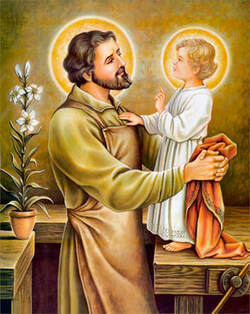 “There is nothing more holy, more eminently perfect, than resignation to the will of God.” ~ St. Vincent de Paul When we hear these words we often think of Mary declaring herself the handmaid of the Lord or Jesus crying out on the cross, “Into your hands Lord, I commend my spirit.” And yet, there is another example of complete sacrifice to God that often slips by us, that of Joseph, the silent and steadfast husband and father, who cared for Mary as the Lord commanded and raised Jesus as his own flesh and blood. “There is nothing more holy, more eminently perfect, than resignation to the will of God.” These are truly words to live by, but not easy words to live by. And yet they give us a powerful image of Joseph, a simple man, a carpenter, a husband, a father, giving himself completely to the Lord. He is a perfect example of someone who wanted to live a simple life, but found more than he could ever imagine when he placed his life in the hands of God. If I had been in Joseph's shoes I would have been afraid, and I am sure that Joseph was afraid, but we know that fear did not guide him. No, “he did as the angel of the Lord had commanded him and took his wife into his home” (Mt 1:24). This image of Joseph is a powerful image. As Saint Pope John Paul II tells us in Redemptoris Custos, Joseph was called by God to be the protector of Mary and the foster-father of Jesus. In some ways we can think of him as the ultimate human protector. He gave up his life and dedicated it to his family, to protect Mary and Jesus so that one day his own son might die a criminal’s death on the cross and save the world. He is a beautiful example of what it means to be a father and a husband, giving all of himself so that his family could live out their own call to serve the Lord. St. Joseph, though often portrayed as a silent figure in the Gospels, remains a beautiful example of fatherhood. Fathers serve in one of the most important and formative roles a child can have. They help us to grow in faith and in love, they teach us the things their fathers taught them, and we look to them for support and guidance, for strength and surety. My own father is one of the greatest men I know. During the last 33 years of marriage he has been a devoted husband and father striving to uphold our faith and me and my three brothers as Catholic gentlemen. He has given his life for his family and God, and I couldn't ask for more. On this feast of St. Joseph the Husband of Mary, it is important for us to remember our own fathers and what they have done for us. It is important to see the sacrifices they have made and how they have guided us to place complete trust in the Lord. As I continue to prepare for marriage this summer I pray and hope that I can live up to the example of St. Joseph and my father, that I can be the husband and father that God is calling me to be. This path is not easy, but I know that if all of us pursuing marriage and those who are already there give ourselves to Christ through the example of St. Joseph that we will live as God has called us to live, in the example of St. Joseph and the Holy Family. This Lenten season I invite you to pursue St. Joseph because in his silence, in his steadfast faith and loyalty to God, and in his devotion and love of his family, he calls us even closer to Christ. Sometimes we need Mary our Mother whose embrace is always loving and warm, like a Mother holding her child. But other times we need the strength of Joseph, a father’s steadfast hand guiding us on the path to Christ, a silent witness to those who have given themselves completely to serving the Lord. Nicholas Shields is a young professional in Washington, D.C.
“Then God said, ‘Let Us make man in Our image, according to Our likeness; and let them rule over the fish of the sea and over the birds of the sky and over the cattle and over all the earth, and over every creeping thing that creeps on the earth.’ God created man in His own image, in the image of God He created him; male and female He created them. God blessed them; and God said to them, ‘Be fruitful and multiply, and fill the earth, and subdue it; and rule over the fish of the sea and over the birds of the sky and over every living thing that moves on the earth.’ … God saw all that He had made, and behold, it was very good” (Genesis 1:26-28, 31).
From this exaltation we begin our reflection on Father’s Day. Many countries set aside the third Sunday of June in honor of both fathers and fatherhood. It’s usually the time when dads are shown the appreciation of their families for all their love, protection, devotion, guidance, caring, wisdom, teaching, entertainment, discipline (ouch), cooking, support, shuttling around, mentoring, coaching, and/or generosity. It’s a totally fair trade-off but also no secret: fatherhood demands much of a man. Unfortunately, not all are blessed to have a father in their lives, and there are many circumstances which contribute to this. Thankfully, God Himself has provided a model for human fatherhood, someone who He entrusted His own Son to during the crucial formative years of Jesus’ human life: St. Joseph. We look to Saint Joseph as the perfect example of paternity, as he was given the honor of being the guardian of the Holy Family. St. Joseph is not directly quoted in scripture, but what about his actions? Do they speak louder than his words (or lack thereof)? It seems that Joseph’s most frequent biblical deed besides traveling is something men can easily relate to— sleeping before taking action (see Matthew 1:20 and 2:13)... but surely there must be more to being a father than this!? Of course there is! To me, being a true (Christian) father means being a Christ-like man who bears witness to the perfect love of God, and who is a virtuous man to his children, spouse, and to all he encounters. We hear a lot about Mary’s hugely consequential “Yes” (see Luke 1:38) to the Father’s will at the Annunciation and how this is the Blessed Mother’s complete giving of herself to God. In his own soft-spoken way, though, Joseph also gave his own “Yes” and similarly submitted himself to the will of God. Even with the extraordinary circumstances of his betrothed’s pregnancy, Joseph, in the end, places his trust in the divine will and accepts the paternal role God offers him as part of His plan. Like Mary, Joseph selflessly placed whatever desires and plans he had for his future second to what he had now been called to become— Jesus’ guardian and protector. It is this obedience that makes Joseph such a worthy role model for all men. Being righteous (see Matthew 1:19), Joseph knew he did not have all the answers; let alone the experience, for the fatherhood he was being called to. Instead, he stepped aside in faithful acceptance of God’s will. As Saint John Paul II so beautifully put it: What emanates from the figure of Saint Joseph is faith. Joseph of Nazareth is a “just man” because he totally “lives by faith.” He is holy because his faith is truly heroic. Sacred Scripture says little of him. It does not record even one word spoken by Joseph, the carpenter of Nazareth. And yet, even without words, he shows the depth of his faith, his greatness. Saint Joseph is a man of great spirit. He is great in faith, not because he speaks his own words, but above all because he listens to the words of the Living God. He listens in silence. And his heart ceaselessly perseveres in the readiness to accept the Truth contained in the word of the Living God. We see how the word of the Living God penetrates deeply into the soul of that man, that just man. (St. John Paul II, Daily Meditations) This past weekend we celebrated Father’s Day, and whether the father in our lives is a biological one, a father figure, or wears a Roman collar, take the time this week to personally thank both he and God for the impact he’s had on your life. Fatherhood is no easy task and is not for everyone, but the love that flows from this holy calling comes directly from Abba God, “our Father in heaven” (Matthew 6:9-13)! May we be obedient to and cherish these men at all times! Thomas Wong is an undergraduate at The Catholic University of America currently studying abroad in Rome, Italy. St. Joseph is known as the Shadow of the Eternal Father, the Perpetual Adorer, the Patron of the Universal Church, the Patron of the Suffering and Dying, the True Foster Father of Jesus Christ, and Most Chaste Spouse of the Ever-Virgin Mary. He shows how a person must rely on the Father’s providence, trust the boldness of the Holy Spirit, and cherish the Incarnate Jesus, all while staying close to the Virgin Mary. St. Joseph is a model of faith and in a unique way he upholds the dignity of all vocations.
Joseph survives and thrives as a person of faith by abandoning his life and family completely to God. The Devil, Herod, and everyday difficulties, like not being able to find a place for his wife to give birth, threaten Joseph’s most precise gifts. A faithful person humbly resigns what they care about most to the Giver of All Gifts only to receive back what is best blessed and renewed. Joseph protects his family through surrendering them to God. How wonderful St. Joseph’s prayers must have been. The way he took his fears and insecurities to God to receive true strength must have been so beautiful. There are many ways that we know that St. Joseph’s faith was profound. The Virgin Mary knows for sure that she has never been with a man, but Joseph does not. St. Joseph trusted in the words of an angel in a dream. The angel said, “Joseph, son of David, do not be afraid to take Mary home as your wife, because what is conceived in her is from the Holy Spirit” (Mt. 1:20). Catholic theology of the Trinity had not been developed yet leaving Joseph not knowing with any sort of clarity who this “Holy Spirit” was that had impregnated his fiancée. St. Joseph demonstrates that his faith is not the kind that limits God by being attached to personal plans and expectations, but is one that allows God to act boldly. His faith is fulfilled by being lived out; he did take Mary as his bride, he did raise Jesus as his son, he did go wherever the Lord commanded him. Joseph fled to Egypt when Jesus’ life was being threatened and he returned home when he was told, doing everything in accordance with God’s will and timing. The obedient Joseph, as the Perpetual Adorer of the Christ-child can also help us grow in intimacy with Christ. Have we ever realized that the baby Jesus was most likely birthed into the callused hands of his carpenter foster-father? St. Joseph knew Jesus in a radically unique and intimate way. Joseph was able to adore the Eucharist while it was still breathing. We can relate to Joseph in the struggles that he faced and the fact that he was not spared from original sin. He was broken, flawed, sinful, fearful, and even being tempted. Joseph, as most chaste spouse, did not reduce Mary to an object of pleasure but he honored her as a whole person. We can imagine that Joseph embraced his call to chastity not begrudgingly but with great joy. Their intimacy honors the glory of creation by neither of them trying to dominate or manipulate the other for personal gain. How immaculate their interactions must have been! St. Joseph and Mary model for us a pure intimacy rooted in trust, commitment, and the will of God. With these considerations in mind we see St. Joseph as an inspiration for all people because he was called to marriage, parenthood, and celibacy. Whether we are called to marriage, religious life, priesthood, or the single-life we should entrust ourselves to St. Joseph and know that he understands the burdens that we carry. As a good father he will teach us to trust God completely and to allow the Holy Spirit to move in dramatic and unexpected ways. With Joseph as a model of faith we will honor the dignity of all people, love Mary, and intimately adore the Incarnate Christ. Daniel Hoover works at St. Mary’s Parish in the Diocese of Wilminigton, DE as a Lay Ecclesial Minister. |
Details
Archives
July 2024
Categories
All
|
About |
Media |
© COPYRIGHT 2024 | ALL RIGHTS RESERVED

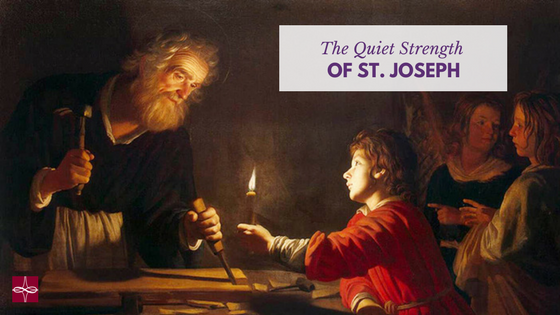

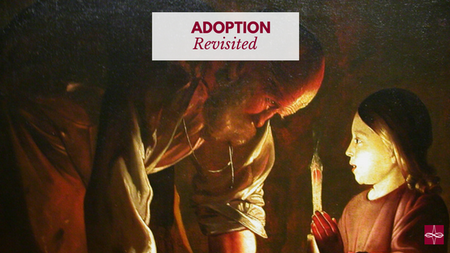

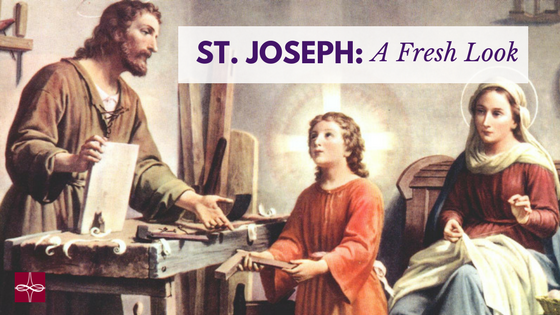

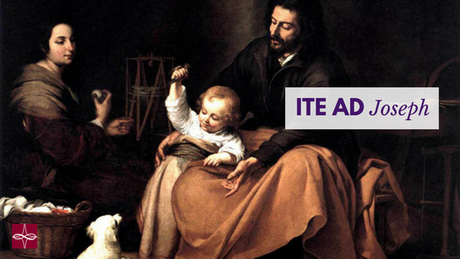

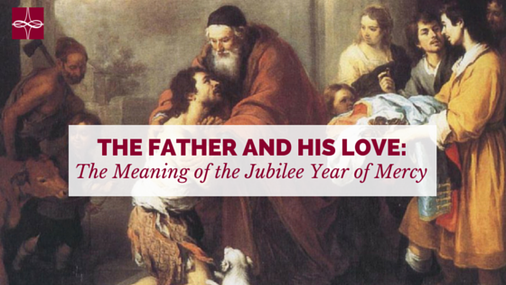

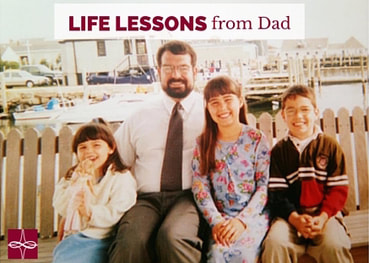

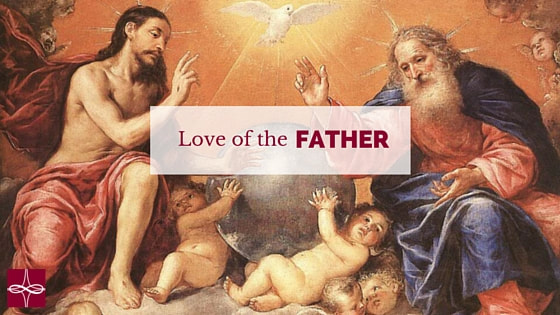

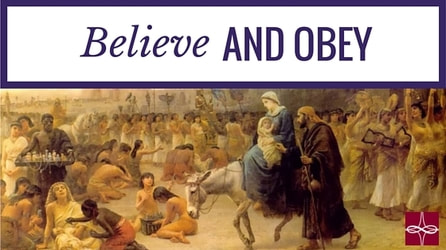
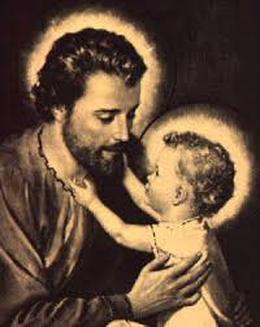

 RSS Feed
RSS Feed